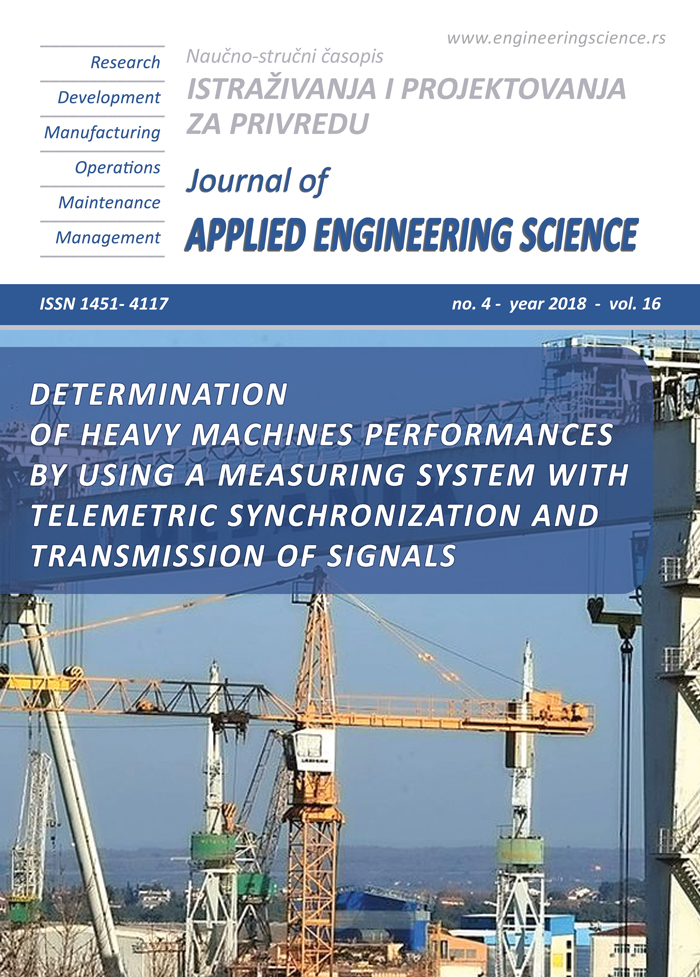Approach to development of mentoring potential in technical universities through the example of the Ural region of the Russian Federation
Abstract
New Federal State Higher Educational Standard introduces significant changes in the sense of purpose of education and overburdens professional adaptation of a starting teacher. In this regard, introduction of effective methods for developing a mentoring mechanism in the higher education system is updated. The goal of the research was to develop an approach to the definition and development of the mentoring potential in higher education institutions through the example of the Ural Region of the Russian Federation. Interviewing helped to analyze the need for mentorship and the level of its potential in universities of the Ural Region. A system of criteria for assessing the potential of a mentor in higher school was substantiated and structured. Using Harrington’s scale, qualitative levels of the potential of a young professional’s mentor in higher education institutions were determined based on quantitative scores. A mentor identification model was proposed, taking into account qualitative and quantitative criteria of the mentoring potential. A system of optimization measures for developing the mentoring mechanism in the higher education system of the Ural Region was substantiated. Practical implementation of the findings would facilitate effective adaptation of young professionals to teaching activities and develop their pedagogical potential.
References
Doyle, S., McCallister, J. (2018). Unique Obstacles for Mentorship During Training. Chest, vol. 154, no. 3, 734.
Esaulova, I. A. (2017). New models of mentoring in the practice of training and development of personnel of foreign companies. Business strategies, vol. 6, no. 38, from https://cyberleninka.ru/article/n/novye-modeli-nastavnichestva-v-praktike-obucheniya-i-razvitiya-personala-zarubezhnyh-kompaniy.
Subocheva, O. N. (2016). Mentoring as a factor in the effectiveness of the organization. Community: sociology, psychology, pedagogics, from https://cyberleninka.ru/article/v/nastavnichestvo-kak-faktor-effektivnosti-organizatsii.
Bressman, S., Winter, J.S., Efron, S.E. (2018). Next generation mentoring: Supporting teachers beyond induction. Teaching and Teacher Education, vol. 73, 162-170.
On the approval of the Concept of the Federal Targeted Program for the Development of Education for 2016-2020. (2014). The Decree of the Government of the Russian Federation as of December 29, 2014 N 2765-р, from http://docs.cntd.ru/document/420244216.
Klarin, M. V. (2016). Modern tutorship: the new features of traditional practice in the organizations of the XXI century, from https://cyberleninka.ru/article/n/sovremennoe-nastavnichestvo-novye-cherty-traditsionnoy-praktiki-v-organizatsiyah-xxi-veka.pdf.
Karacheva, E. V., Teslenko, I. V. (2015). Institute of mentoring as an actual trend in vocational education. Collection of materials of the International Youth Scientific and Practical Conference "Innovative potential of youth: patriotism, education, professionalism", from http://elar.urfu.ru/bitstream/10995/35142/1/ipoy-2015-25.pdf
Pinskaya, M., Ponomareva, A. (2018). National Research University "Higher School of Economics," from https://iq.hse.ru/news/188236974.html.
Reid, N. (2015). Statistical Sufficiency. International Encyclopedia of the Social & Behavioral Sciences (Second Edition), 418-422.
Kühn, D., Osthus, D., Townsend, T., Zhao, Yi. (2017). On the structure of oriented graphs and digraphs with forbidden tournaments or cycles. Journal of Combinatorial Theory, B, vol. 124, 88-127.
Odiorne George S., 71, developer of a management concept. (1992). The Baltimore Sun, from http://articles.baltimoresun.com/1992-01-26/news/1992026059_1_simon-war-ii-habif.
Irby, B., & Boswell, J. (2016). Historical Print Context of the Term, “Mentoring”. Journal Mentoring & Tutoring: Partnership in Learning, vol. 24, no. 1, 1-7.
Megginson, D. (2006). Mentoring in Action: A Practical Guide. Development and Learning in Organizations, vol. 20, no. 5.
Luebeck, J., Burroughs, E. (2017). A research journey through mathematics coaching.The Journal of Mathematical Behavior, vol. 46, 152-162.
Weber-Mayrer, M.M., Piasta, S.B., Ottley, J.R., Justice, L.M., O'Connell, A.A. (2018). Early childhood literacy coaching: An examination of coaching intensity and changes in educators' literacy knowledge and practice. Teaching and Teacher Education, vol. 76, 14-24.
Anghela, A., Voicu, C. (2013). Coaching and Mentoring in Bachelor′s Degree Programs for Social Workers and Teachers. Procedia - Social and Behavioral Sciences, vol. 92, 36-40.
Milistetd, M., Ciampolini, V., Mendes, M.S., Cortela, C.C., Vieira do Nascimento, J. (2018). Student-coaches perceptions about their learning activities in the university context.RevistaBrasileira de Ciências do Esporte, vol. 40, no. 3, 281-287.
Lusena – Ezera, I., Demitere – Krumkalna, D. (2015). Adaption of New Teachers in Educational Establishments of Liepaja City (Latvia). Procedia - Social and Behavioral Sciences, vol. 197, 430-436.
Fisher, M., Stanyer, R. (2018). Peer mentoring: Enhancing the transition from student to professional. Midwifery, vol. 60, 56-59.
Soslau, E., Kotch-Jester, S., Scantlebury, K., Gleason, S. (2018). Coteachers’ huddles: Developing adaptive teaching expertise during student teaching. Teaching and Teacher Education, vol. 73, 99-108.
Donlan, A.E., McDermott, E.R., Zaff, J.F. (2017). Building relationships between mentors and youth: Development of the TRICS model. Children and Youth Services Review, vol. 79, 385-398.
Spencer, R., Drew, A.L., Gowdy, G., &Horn, J.P. (2018). “A positive guiding hand”: A qualitative examination of youth-initiated mentoring and the promotion of interdependence among foster care youth. Children and Youth Services Review, vol. 93, 41-50.
Kim, S.S., Im, J., & Hwang, J. (2015). The effects of mentoring on role stress, job attitude, and turnover intention in the hotel industry. International Journal of Hospitality Management, vol. 48, 68-82.
Clutterbuck, D.A., Kochan, F., Lunsford, L.G., Dominguez, N., &Haddock-Millar, J. (2017). The SAGE Handbook of Mentoring 1st Edition. SAGE Publications Ltd, New York.
Zhang, Y.E., Nesbit, P.L. (2018). Talent Development in China: Human resource managers' perception of the Value of the MBA. The International Journal of Management Education, vol. 16, no. 3, 380-393.
Mena, J., Hennissen, P., Loughran, J. (2017). Developing pre-service teachers' professional knowledge of teaching: The influence of mentoring.Teaching and Teacher Education, vol. 66, 47-59.
Menke, W. (2018). Factor Analysis. Geophysical Data Analysis (Fourth Edition), 207–222.
Potapova, V. A., Mezenova, O. Ya. (2015). Evaluation of the balancedness of the recipe for snacks using the Harrington desirability function. Text of the scientific article on the specialty "Food Industry," from https://cyberleninka.ru/article/n/otsenka-sbalansirovannosti-retseptury-ryborastitelnyh-snekov-s-pomoschyu-funktsii-zhelatelnosti-harringtona.
Sabirova, E.G., Vasyagina, N.N., Imanov, A.K. (2016). The Model of the Professional and Personal Orientation of the Teacher. Mathematics Education, vol. 11, no. 1, 291-301.

